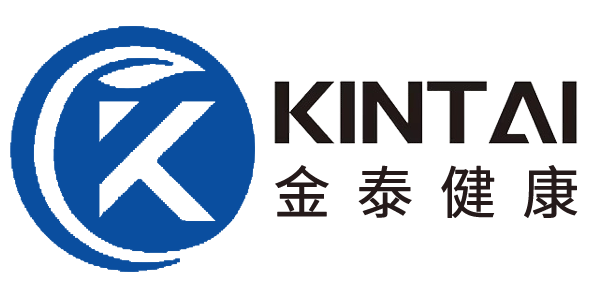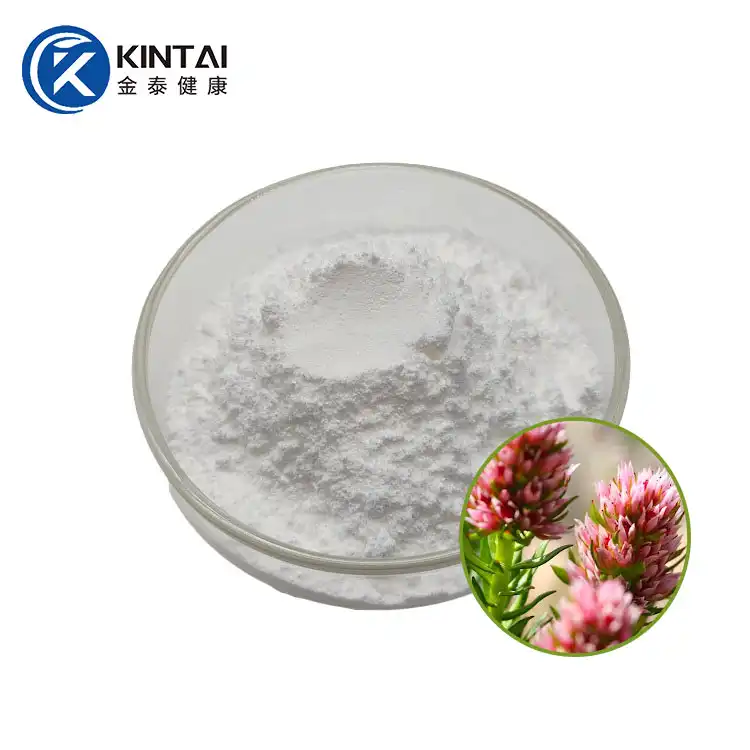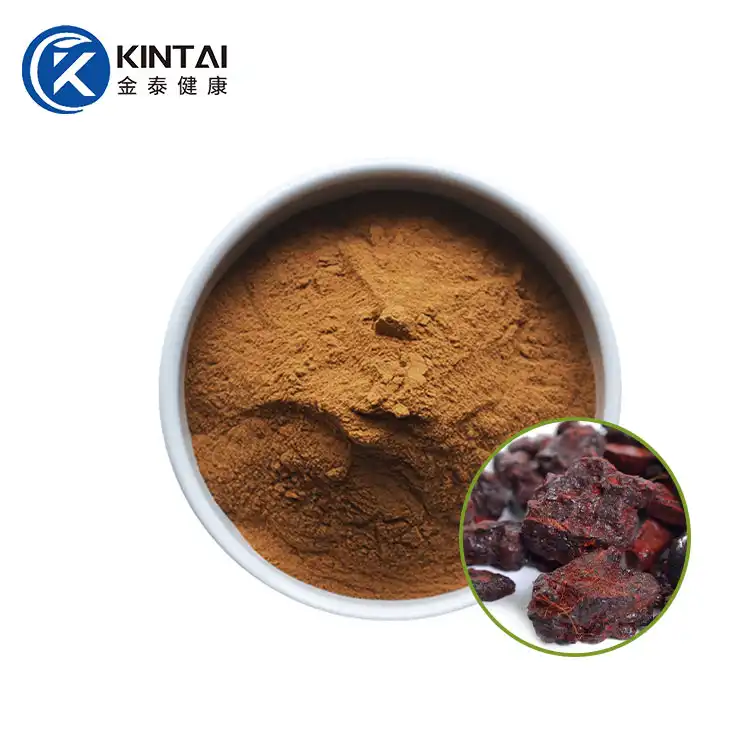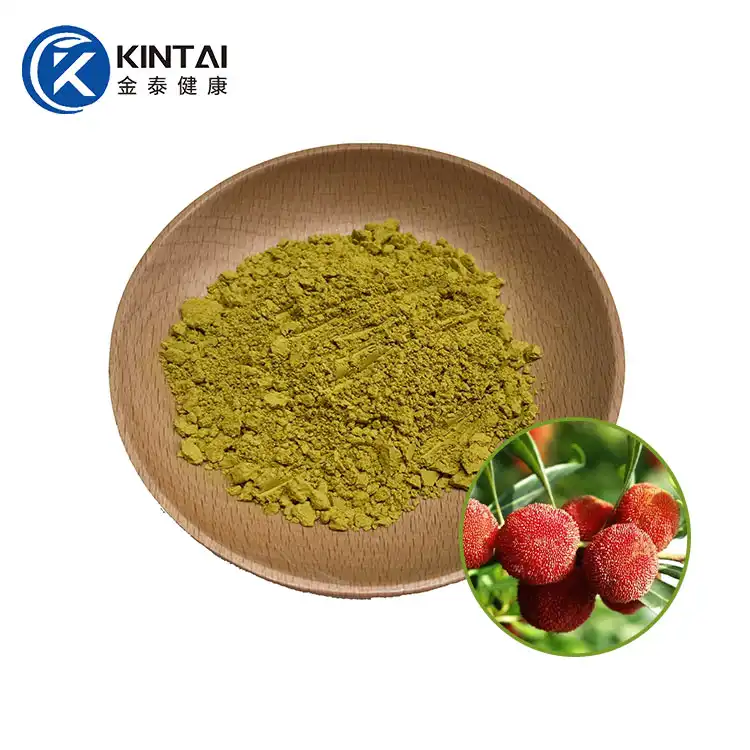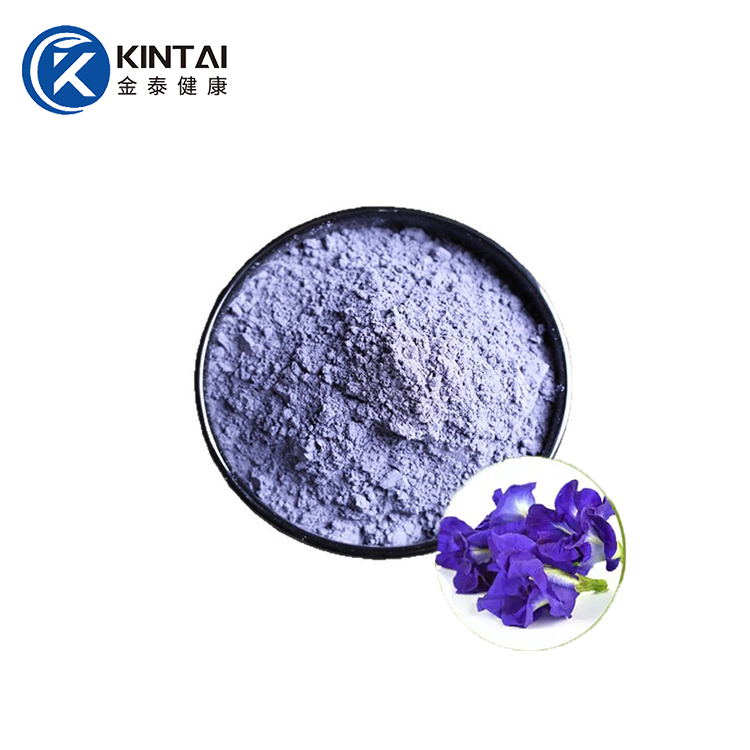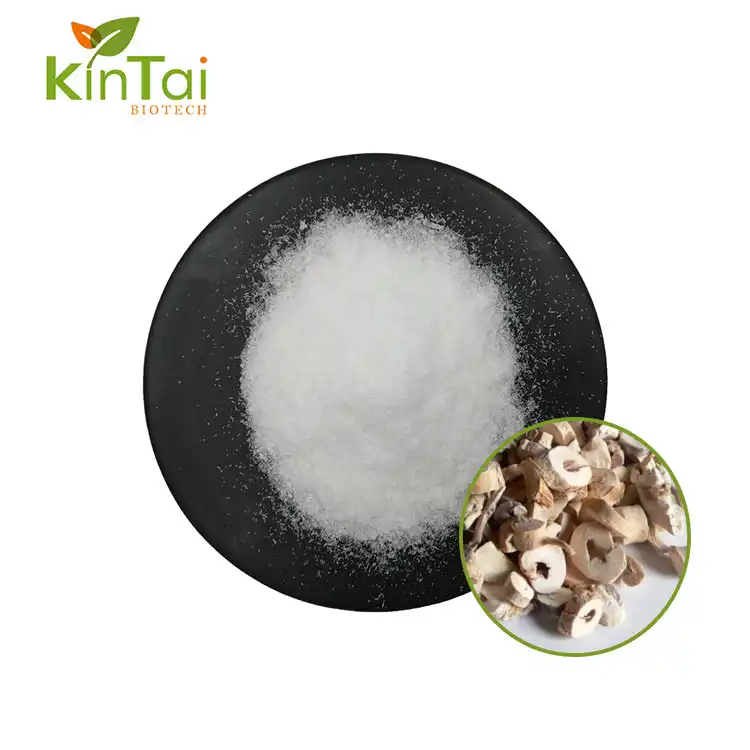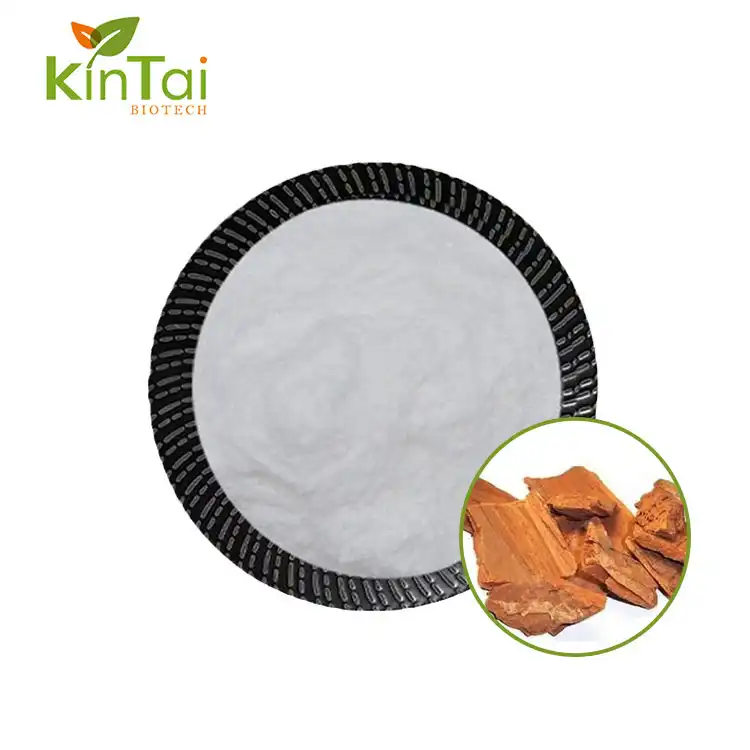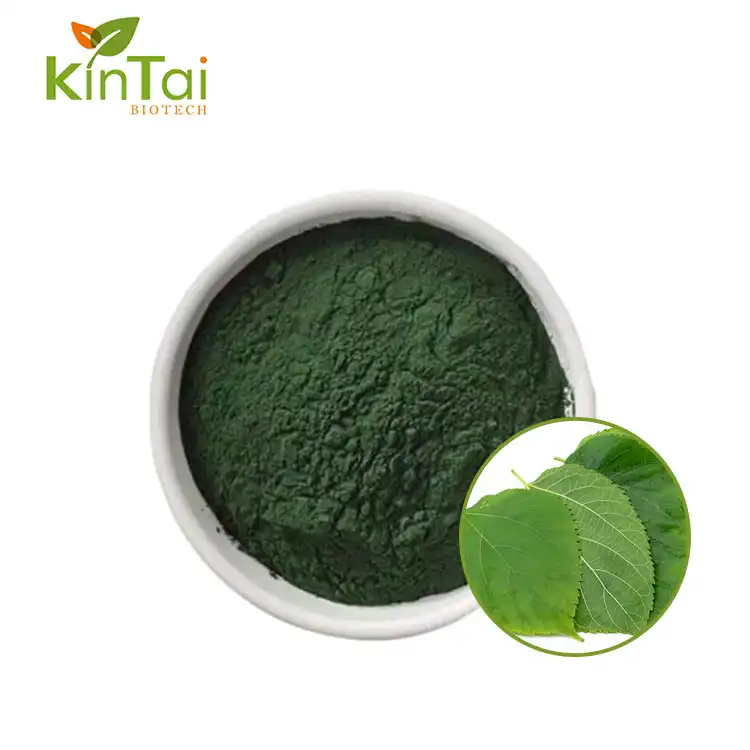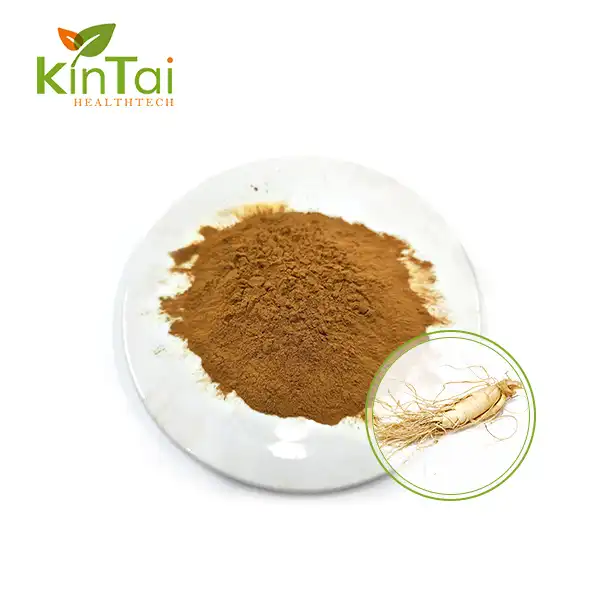What is the Recommended Dosage of Resveratrol Extract Powder?
2024-10-30 09:29:08
Resveratrol, a powerful antioxidant found in red wine, grapes, and certain berries, has gained popularity as a dietary supplement due to its potential health benefits. As more people turn to resveratrol extract powder as a convenient way to incorporate this compound into their daily routine, questions about proper dosage arise. In this blog post, we'll explore the recommended dosage of resveratrol extract powder and address some common concerns related to its consumption.

How much resveratrol should I take daily?
Determining the optimal daily dosage of resveratrol can be challenging, as research on its effects in humans is still ongoing. However, based on current studies and expert recommendations, a general guideline for resveratrol supplementation can be established.
Most clinical trials have used dosages ranging from 100 mg to 2,000 mg per day. The lower end of this range, around 100-250 mg daily, is often considered a maintenance dose for general health benefits. Higher doses, typically 500-1,000 mg daily, have been used in studies focusing on specific health conditions or potential therapeutic effects.
It's important to note that the optimal dosage may vary depending on individual factors such as age, weight, overall health, and specific health goals. Some experts suggest starting with a lower dose of 100-200 mg per day and gradually increasing it if needed while monitoring for any potential side effects.
When using resveratrol extract powder, it's crucial to follow the manufacturer's recommendations on the product label. These guidelines are typically based on the concentration of resveratrol in the powder and can help ensure you're taking an appropriate amount.
Keep in mind that resveratrol absorption can be enhanced when taken with a small amount of fat, such as olive oil or avocado. Some people prefer to take their resveratrol supplement with a meal containing healthy fats to improve its bioavailability.
While resveratrol is generally considered safe for most people, it's always best to consult with a healthcare professional before starting any new supplement regimen, especially if you have pre-existing health conditions or are taking medications.

Is it safe to take resveratrol every day?
The safety of taking resveratrol daily has been a topic of interest for both researchers and consumers. Based on current evidence, resveratrol is generally considered safe for daily consumption when taken at recommended doses. However, as with any supplement, it's essential to understand the potential benefits and risks associated with long-term use.
Several studies have investigated the safety profile of resveratrol supplementation. A comprehensive review published in the journal "Molecular Nutrition & Food Research" analyzed data from multiple clinical trials and concluded that resveratrol is well-tolerated in humans, with no significant adverse effects reported at doses up to 1,000 mg per day for up to three months.
That being said, some individuals may experience mild side effects when taking resveratrol, especially at higher doses. These can include:
-
Gastrointestinal discomfort
-
Nausea
-
Headache
-
Dizziness
These side effects are typically mild and often resolve on their own as the body adjusts to the supplement. If you experience persistent or severe side effects, it's advisable to reduce the dosage or discontinue use and consult with a healthcare provider.
One important consideration for daily resveratrol extract use is its potential interaction with certain medications. Resveratrol may interact with blood thinners, such as warfarin, and may affect the metabolism of some drugs processed by the liver. If you're taking any medications, it's crucial to discuss resveratrol supplementation with your doctor to ensure there are no contraindications.
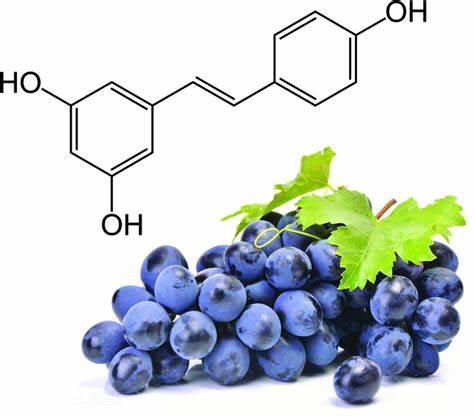
For most healthy adults, taking resveratrol daily at recommended doses appears to be safe. However, certain groups should exercise caution or avoid resveratrol supplementation altogether:
-
Pregnant or breastfeeding women
-
Individuals with bleeding disorders
-
Those scheduled for surgery (due to potential blood-thinning effects)
-
People with hormone-sensitive conditions (as resveratrol may have estrogenic effects)
To ensure the safety of daily resveratrol consumption, it's advisable to:
-
Start with a lower dose and gradually increase if needed
-
Choose a high-quality supplement from a reputable manufacturer
-
Follow the recommended dosage on the product label
-
Monitor your body's response and any potential side effects
-
Regularly consult with a healthcare professional, especially if you have pre-existing health conditions or are taking medications
By following these guidelines and staying informed about the latest research, you can make an informed decision about incorpo rating resveratrol into your daily health regimen.
Can you take too much resveratrol?
While resveratrol is generally considered safe, it is possible to take too much, leading to potential adverse effects. Understanding the risks associated with excessive resveratrol consumption is crucial for anyone considering this supplement as part of their health routine.
The upper limit for safe resveratrol consumption has not been definitively established, as long-term studies on high doses in humans are limited. However, most experts agree that doses up to 1,500 mg per day are unlikely to cause serious harm in healthy adults. That being said, it's important to note that higher doses don't necessarily translate to increased benefits and may actually lead to unwanted effects.
Some potential risks associated with excessive resveratrol intake include:
-
Increased bleeding risk: High doses of resveratrol may inhibit blood clotting, potentially increasing the risk of bleeding, especially in individuals taking blood-thinning medications or those with bleeding disorders.
-
Hormonal effects: Resveratrol extract has been shown to have estrogenic properties, which could potentially affect hormone-sensitive conditions. This is particularly relevant for individuals with a history of hormone-dependent cancers or those undergoing hormone therapy.
-
Drug interactions: Excessive resveratrol intake may interfere with the metabolism of certain medications, potentially altering their effectiveness or increasing the risk of side effects.
-
Gastrointestinal issues: Very high doses of resveratrol may cause digestive discomfort, including nausea, stomach pain, and diarrhea.
-
Headaches and dizziness: Some individuals report experiencing headaches or dizziness when taking large amounts of resveratrol.
To avoid taking too much resveratrol, consider the following guidelines:
-
Stick to recommended dosages: Follow the instructions on the product label or the advice of a healthcare professional.
-
Be cautious with multiple sources: If you're consuming resveratrol from various sources (e.g., supplements, red wine, grape juice), be mindful of your total intake.
-
Avoid megadosing: There's little evidence to suggest that extremely high doses of resveratrol provide additional benefits, and they may increase the risk of side effects.
-
Consider cycling: Some experts suggest taking breaks from resveratrol supplementation to prevent potential tolerance or long-term effects.
-
Monitor your body's response: Pay attention to how your body reacts to resveratrol and adjust your intake accordingly.
It's worth noting that the body's ability to absorb and utilize resveratrol may have an upper limit. Some studies suggest that higher doses may not necessarily lead to higher blood concentrations of resveratrol, as the body's capacity to absorb and metabolize the compound may become saturated.
Additionally, the quality and purity of resveratrol supplements can vary significantly between manufacturers. Choosing a reputable brand that undergoes third-party testing can help ensure you're getting a safe and effective product.

If you're considering taking resveratrol supplements, especially at higher doses, it's crucial to consult with a healthcare professional. They can help you determine an appropriate dosage based on your individual health status, medications, and health goals. They can also monitor your progress and make adjustments as needed to ensure you're safely benefiting from resveratrol supplementation.
In conclusion, while resveratrol offers promising health benefits, it's essential to approach its use with caution and informed decision-making. By understanding the recommended dosage, potential risks of excessive intake, and the importance of personalized guidance, you can make the most of resveratrol extract powder as part of a balanced approach to health and wellness.
Kintai Healthtech Inc. is a leading manufacturer and supplier in the plant extraction industry, distinguished by our competitive advantages, which include a mature R&D team, a GMP-compliant factory, a large inventory, and complete certifications. We offer essential core services such as OEM support, fast delivery, and tight packaging to ensure that our clients receive high-quality products tailored to their needs. Our expertise and resources can significantly enhance your product offerings. For more details, please consult us at info@kintaibio.com. We look forward to the opportunity to work with you!
References:
- Berman, A. Y., Motechin, R. A., Wiesenfeld, M. Y., & Holz, M. K. (2017). The therapeutic potential of resveratrol: a review of clinical trials. NPJ precision oncology, 1(1), 1-9.
- Novelle, M. G., Wahl, D., Diéguez, C., Bernier, M., & de Cabo, R. (2015). Resveratrol supplementation: Where are we now and where should we go? Ageing research reviews, 21, 1-15.
- Tomé-Carneiro, J., Larrosa, M., González-Sarrías, A., Tomás-Barberán, F. A., García-Conesa, M. T., & Espín, J. C. (2013). Resveratrol and clinical trials: the crossroad from in vitro studies to human evidence. Current pharmaceutical design, 19(34), 6064-6093.
- Smoliga, J. M., Baur, J. A., & Hausenblas, H. A. (2011). Resveratrol and health–a comprehensive review of human clinical trials. Molecular nutrition & food research, 55(8), 1129-1141.
- Weiskirchen, S., & Weiskirchen, R. (2016). Resveratrol: How much wine do you have to drink to stay healthy? Advances in Nutrition, 7(4), 706-718.
- Poulsen, M. M., Vestergaard, P. F., Clasen, B. F., Radko, Y., Christensen, L. P., Stødkilde-Jørgensen, H., ... & Jessen, N. (2013). High-dose resveratrol supplementation in obese men: an investigator-initiated, randomized, placebo-controlled clinical trial of substrate metabolism, insulin sensitivity, and body composition. Diabetes, 62(4), 1186-1195.
- Brasnyó, P., Molnár, G. A., Mohás, M., Markó, L., Laczy, B., Cseh, J., ... & Wittmann, I. (2011). Resveratrol improves insulin sensitivity, reduces oxidative stress and activates the Akt pathway in type 2 diabetic patients. British Journal of Nutrition, 106(3), 383-389.
- Brown, V. A., Patel, K. R., Viskaduraki, M., Crowell, J. A., Perloff, M., Booth, T. D., ... & Brenner, D. E. (2010). Repeat dose study of the cancer chemopreventive agent resveratrol in healthy volunteers: safety, pharmacokinetics, and effect on the insulin-like growth factor axis. Cancer research, 70(22), 9003-9011.
- de Ligt, M., Timmers, S., & Schrauwen, P. (2015). Resveratrol and obesity: Can resveratrol relieve metabolic disturbances? Biochimica et Biophysica Acta (BBA)-Molecular Basis of Disease, 1852(6), 1137-1144.
- Boocock, D. J., Faust, G. E., Patel, K. R., Schinas, A. M., Brown, V. A., Ducharme, M. P., ... & Gescher, A. J. (2007). Phase I dose escalation pharmacokinetic study in healthy volunteers of resveratrol, a potential cancer chemopreventive agent. Cancer Epidemiology and Prevention Biomarkers, 16(6), 1246-1252.
